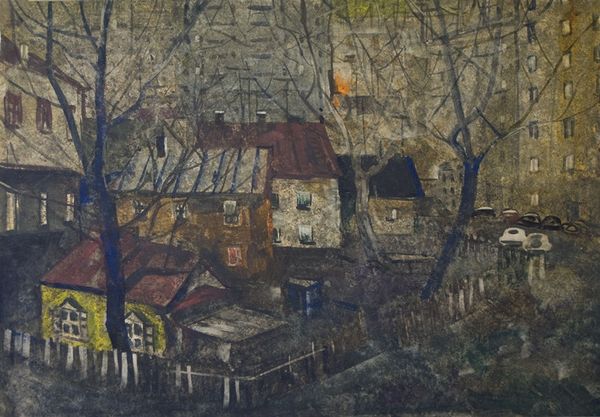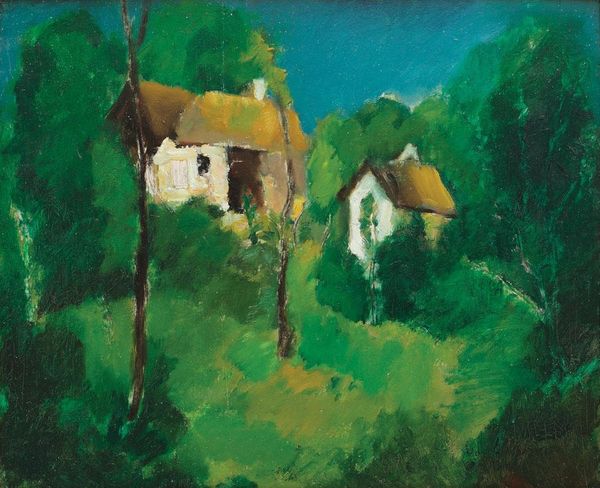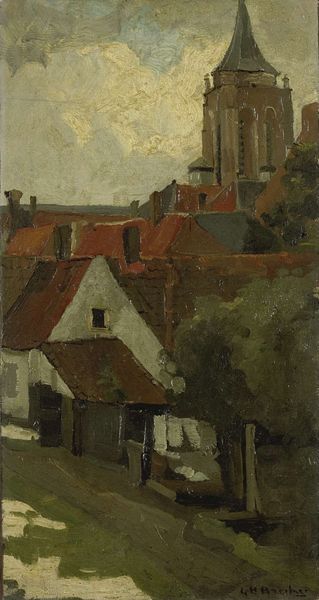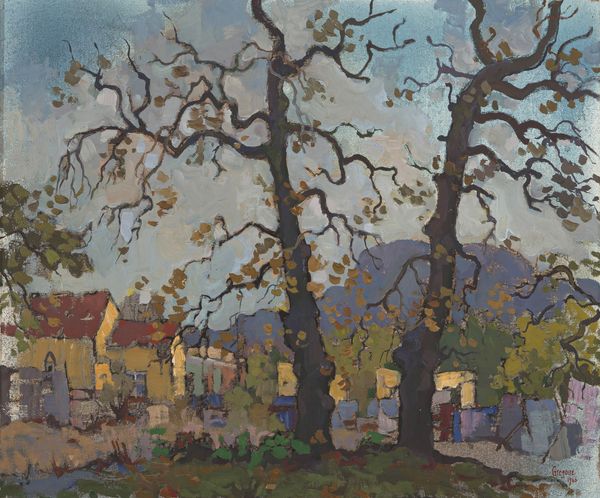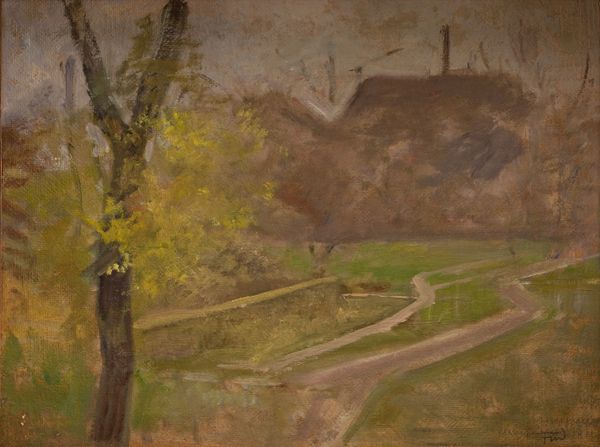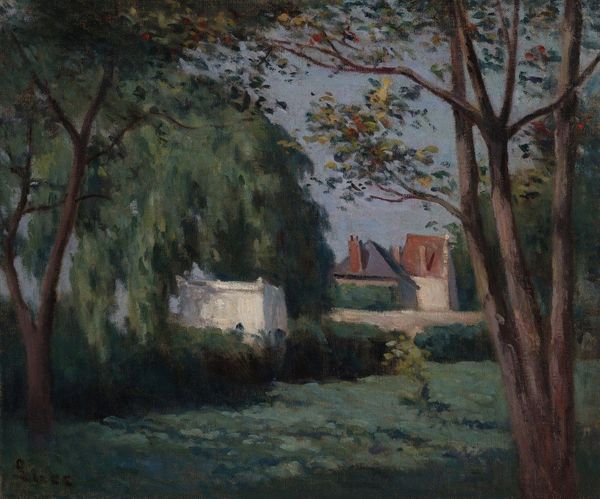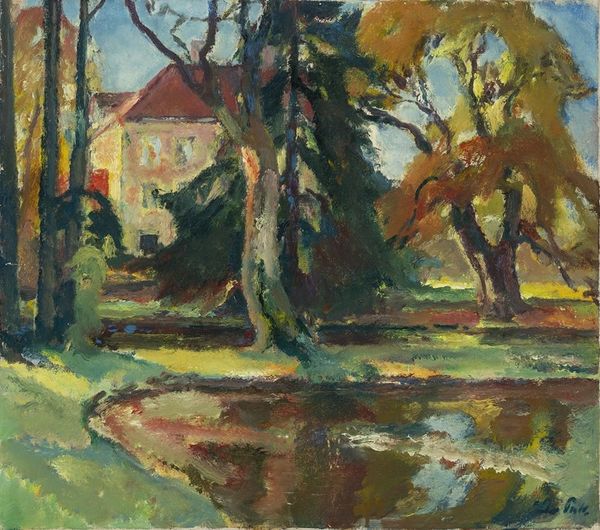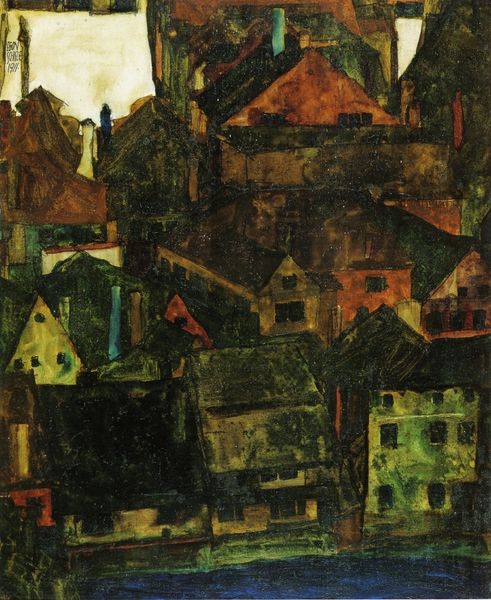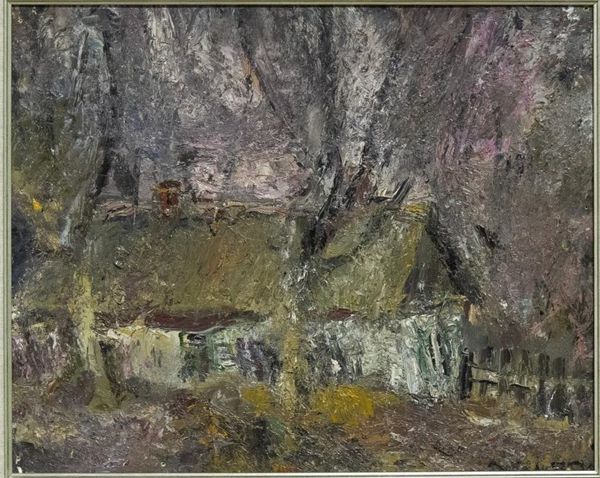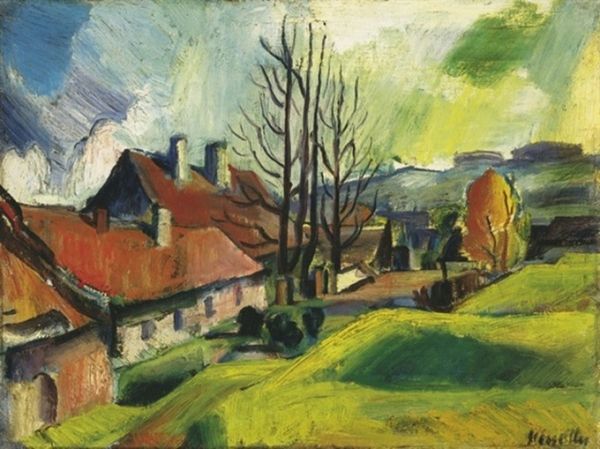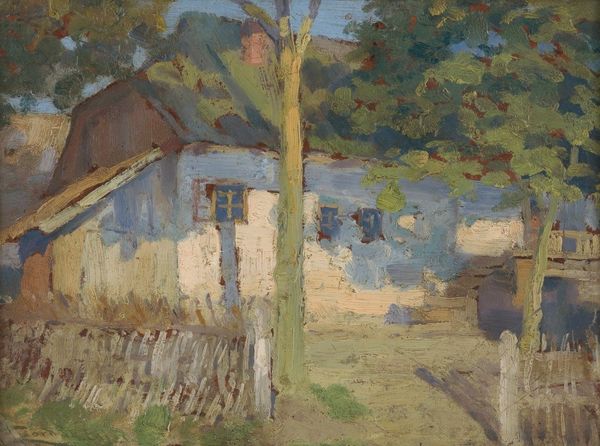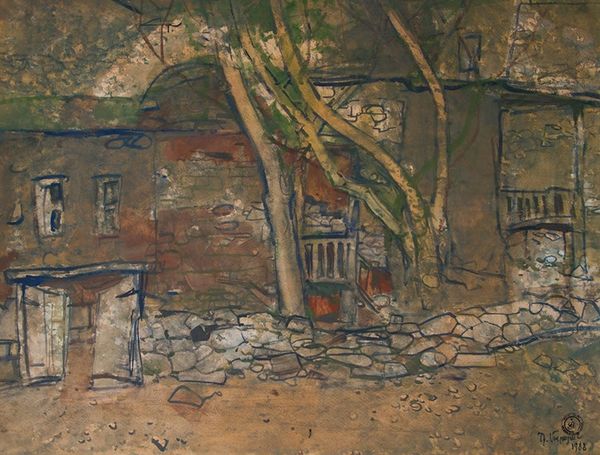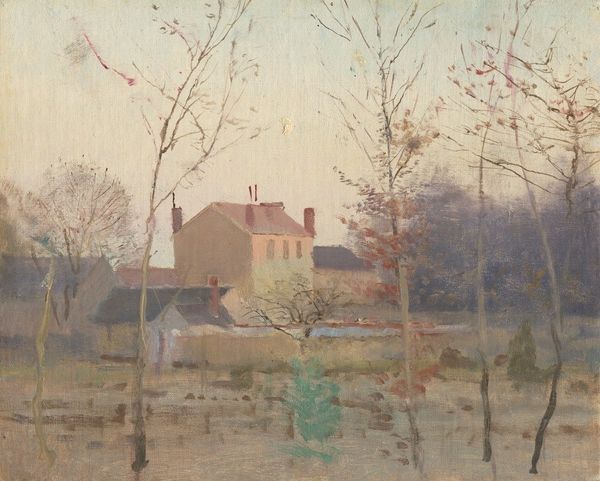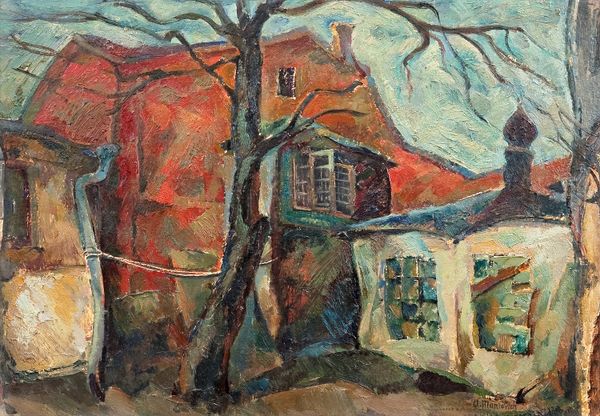
oil-paint
#
oil-paint
#
oil painting
#
cityscape
#
watercolor
#
realism
Copyright: Petros Malayan,Fair Use
Curator: Welcome. Before us hangs Petros Malayan’s “Branevo,” an oil painting rendered in 1972. Editor: It's immediately striking – a muted palette, somber almost. It feels like a city emerging from mist, or perhaps memory. Curator: Indeed. What Malayan gives us here is less about meticulous architectural record and more about capturing a town's lived essence, considering its materials and its location near the East Prussian town now Braniewo, Poland. We see the legacy of material change wrought by historical events and political shifts on landscape and culture. Editor: Agreed. But beyond that context, observe how he organizes space—the stark verticals of the trees contrasting with the angular rooftops. It’s not a romantic depiction. Curator: Well, no. Realism during this period often functioned as subtle social critique. The application of the paint itself—relatively thin, almost watercolor-like—speaks to resource scarcity, to making do with less, during the later Soviet period in Armenia. Editor: I see what you mean. But even within that imposed constraint, the composition maintains an expressive quality. The muted greens and browns are hardly accidental; the painting’s tonality seems calculated to elicit a specific emotional response. Note how the placement of that one pale building centers your gaze, despite being hemmed in by trees. Curator: And consider that realism, particularly in the Soviet context, became a complicated tool. While espousing accessibility, it frequently obscured labor realities and commodity flows within the planned economy. Malayan walks a fascinating line. Editor: So he’s utilizing realism in a novel way—showing us both the real buildings and making us think about what everyday life must have been. What seems to me like a depressing painting actually has so much going on when you peel back the layers of visual expression. Curator: Precisely. It shows us how aesthetic choices inevitably intersect with material circumstances. Thank you for joining me, the conversation has deepened our encounter with Malayan's vision. Editor: It has for me as well. There’s so much here to ponder.
Comments
No comments
Be the first to comment and join the conversation on the ultimate creative platform.
